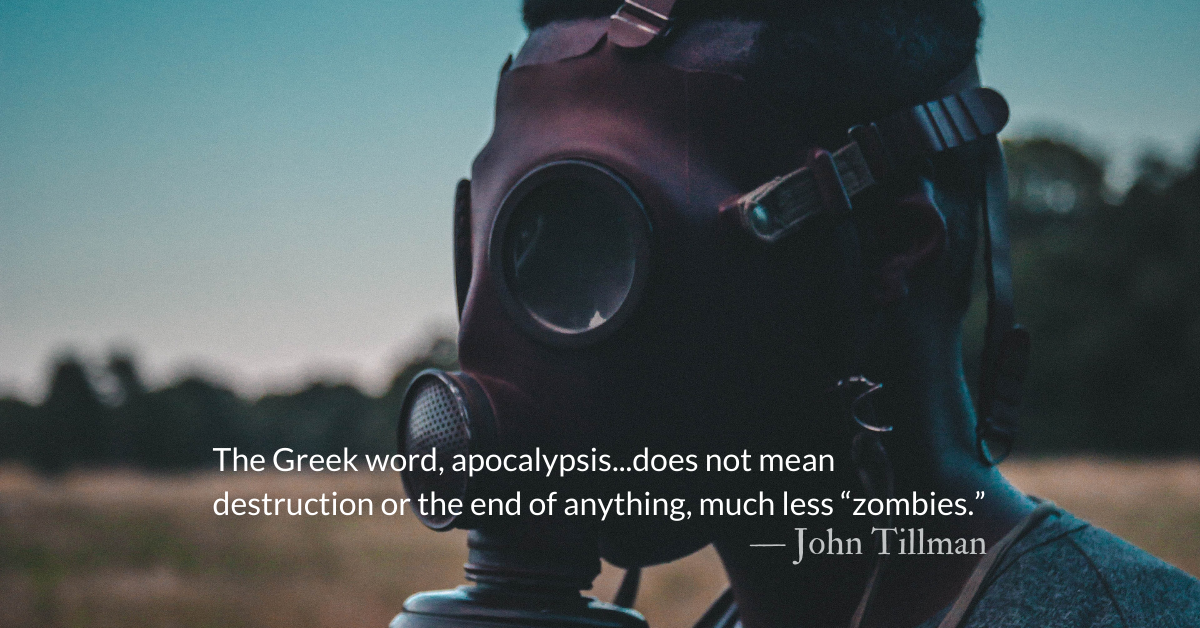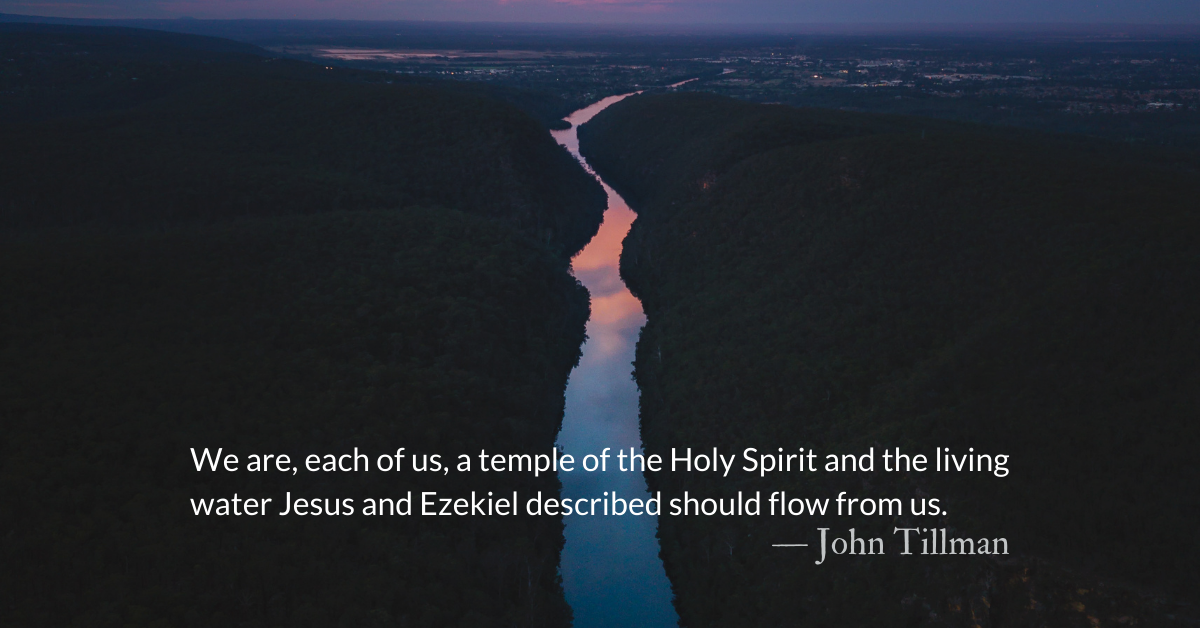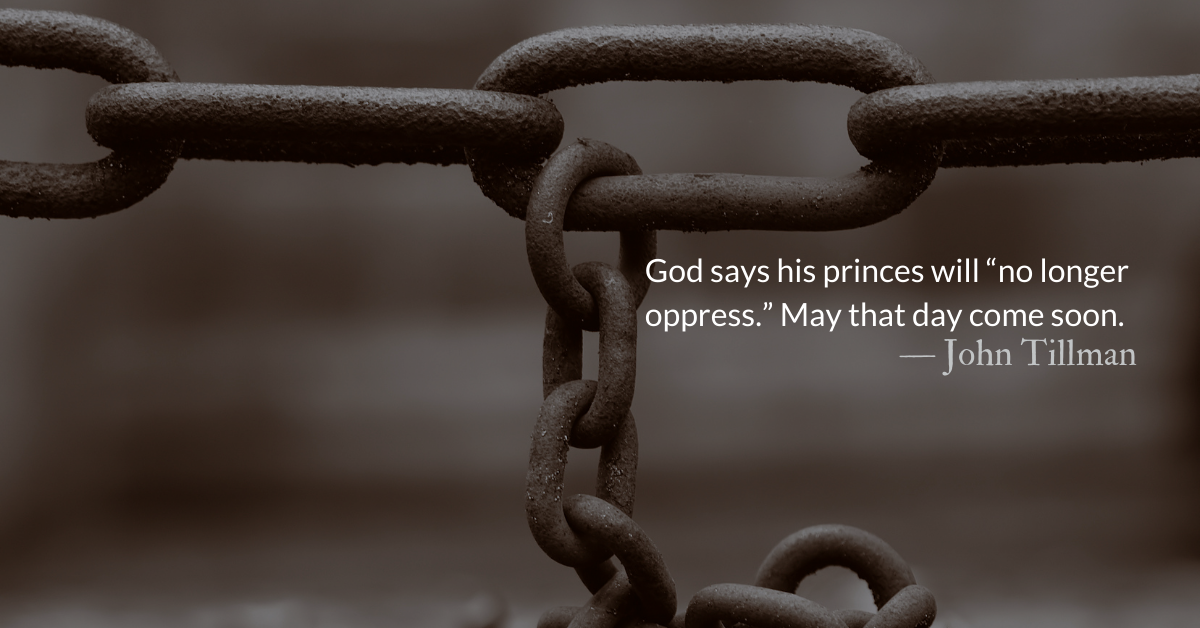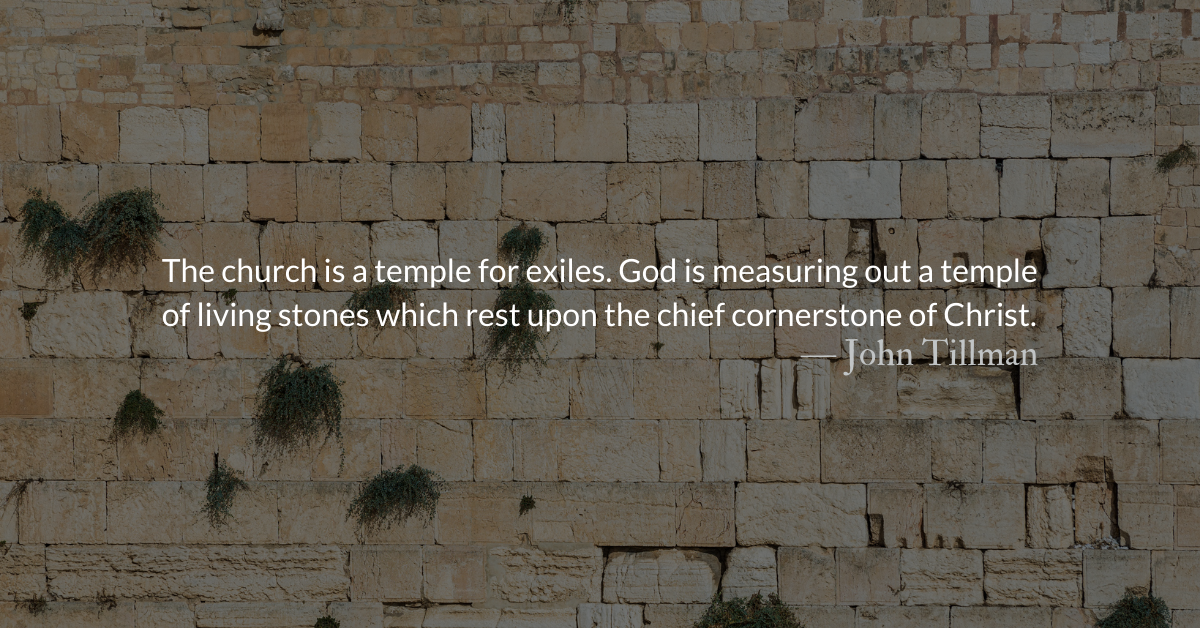Readers’ Choice Month:
In August, The Park Forum looks back on our readers’ selections of our most meaningful and helpful devotionals from the past 12 months. Thank you for your readership. This month is all about hearing from you. Submit a Readers’ Choice post today.
Today’s post is an “Editor’s Choice” originally published, September 8, 2020, based on readings from Ezekiel 11.
It was selected by John Tillman
“Connecting apocalyptic fiction to the true meaning of apocalypse in scripture has long been something I wanted to write about. For decades, I have enjoyed apocalyptic-style fiction and recognized that it revealed things about our culture. We see this by watching the same “monster” come to us dressed in different fears and sins as our culture changes. For example, early zombie stories had supernatural causes and showed our fear of spiritual forces, now zombie stories are connected to fears of genetic manipulation or other types of technology and the “sins” of society or corporations that pursue them. As a society and as individuals, we never stop needing to have our sins and fears revealed to us so that we may confess them to our God. Rather than our greatest fear, ‘apocalypse’ may be our greatest need.”
Scripture Focus: Ezekiel 11.13
Then I fell facedown and cried out in a loud voice, “Alas, Sovereign LORD! Will you completely destroy the remnant of Israel?”
Reflection: Apocalypse, How? — Editor’s Choice
By John Tillman
Today, we think of an “apocalypse” as a kind of ending event, involving widespread destruction, suffering, and death.
Apocalypses come in different flavors from zombies to aliens, from resurrected dinosaurs to natural disasters. Some of our apocalyptic tastes can be quite bizarre. Who would have guessed in 2013 that by 2020 there would be five sequels to Sharknado?
The popularity of “apocalypse” in entertainment has even spawned industries supporting “preppers” who stock up on guns, ammo, food, supplies, or whatever they may need for various kinds of apocalyptic scenarios.
We have apocalypses all wrong.
The Greek word, apocalypsis, does not mean destruction or the end of anything, much less “zombies.” Apocalypsis means unveiling or revealing, and it is the Greek title of the book we call “Revelation.” But the book called Apocalypsis or Revelation isn’t the only apocalyptic part of the Bible. There are many books, poems, writings, and stories that are considered “apocalyptic” in nature. Some “apocalypses” are violent, some are not.
Jesus told his disciples that he would “apocalypse” the father to them, meaning that he would reveal to them God the Father. In fact, Jesus’ entire ministry could be described as one long, loving apocalypse, revealing to us what God is like. “Anyone who has seen me has seen the Father…” (John 14.9)
When we read an “apocalyptic” passage in the Bible, we need to remember that something is being revealed or exposed.
In Ezekiel’s vision, the suffering he witnessed caused him to fall to his knees and cry out, fearing that all would be destroyed. This is often our fear as well, which is revealed in our fictional apocalypses. Name your fear and there’s an apocalypse flavor catering to it. We fear the breakdown of society and human nature? Hollywood gives us zombies. We fear destruction caused by irresponsible science or business? Hollywood gives us Jurassic Park. Our “apocalypses” are revealing after all. They reveal things about us.
Ezekiel did not fully understand the depth of Judah’s sin until he saw the horrifying visions he records. Many times, it takes a moment of horror for us to be forced to confront our own sin. Our sin will be “apocalypsed” to us. But how?
What sin have you glossed over or covered that God might “apocalypse” to you?
What spiritual “prepping” have you done that might aid you?
Are you ready for an apocalypse?
Divine Hours Prayer: A Reading
In the due course John the Baptist appeared; he proclaimed this message in the desert of Judea: “Repent, for the kingdom of Heaven is close at hand. “ — Matthew 3.1-2
– Divine Hours prayers from The Divine Hours: Prayers for Springtime by Phyllis Tickle
Today’s Readings
1 Samuel 12 (Listen – 4:19)
Romans 10 (Listen – 3:21)
This Weekend’s Readings
1 Samuel 13 (Listen – 3:54), Romans 11 (Listen – 5:23)
1 Samuel 14 (Listen – 9:01), Romans 12 (Listen – 2:58)
Read More about Readers’ Choice 2021
Have we heard from you yet? Tell us about posts from the past year (September 2020 – July 2021) that have helped you in your faith.
https://forms.gle/ozM13qvW9ouSWhJS7
Read more about Prepare for the End
Whenever and however “the end” comes, we can be soberly prepared, watchfully vigilant, and unwaveringly hopeful.











